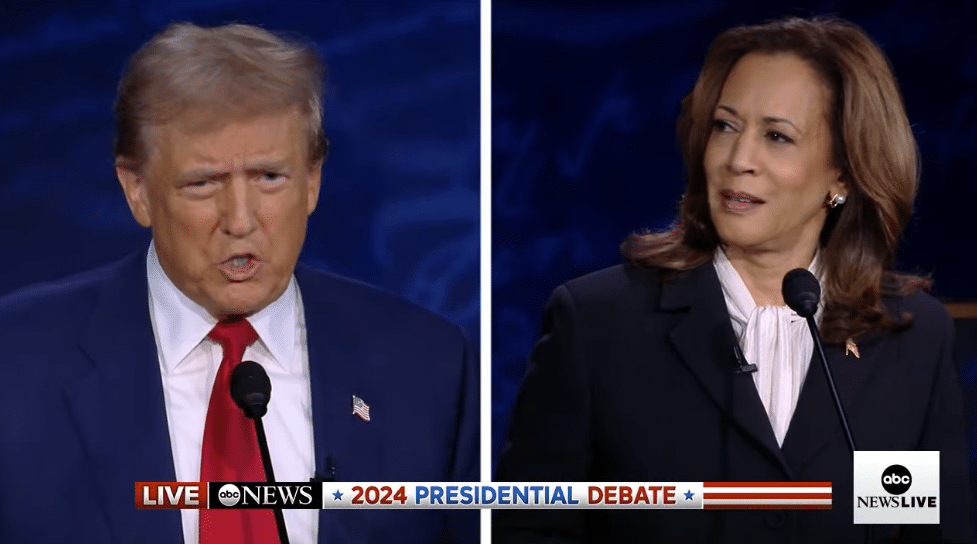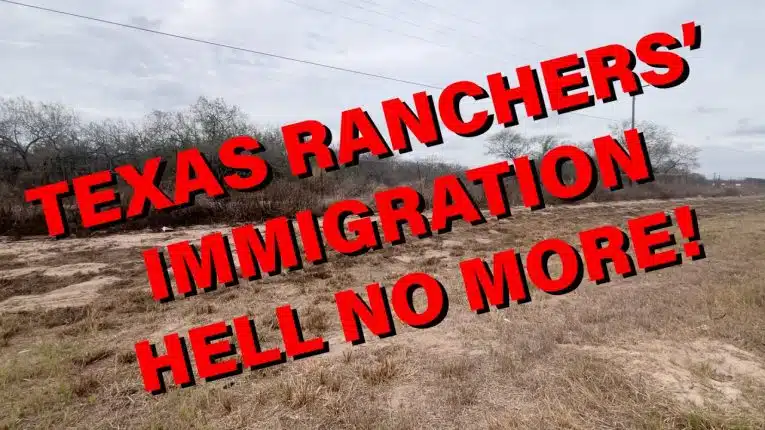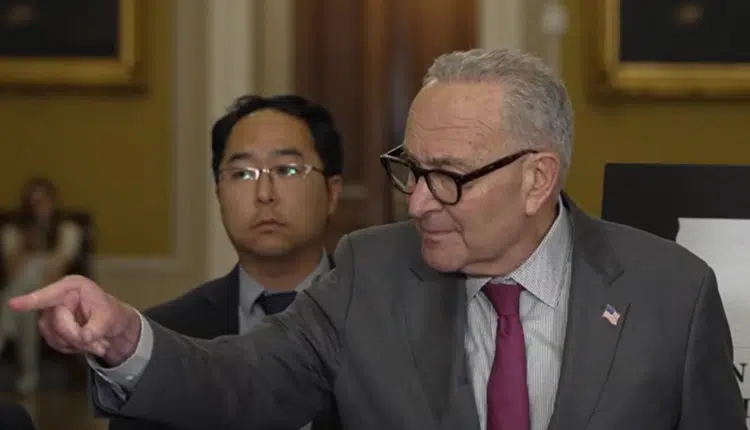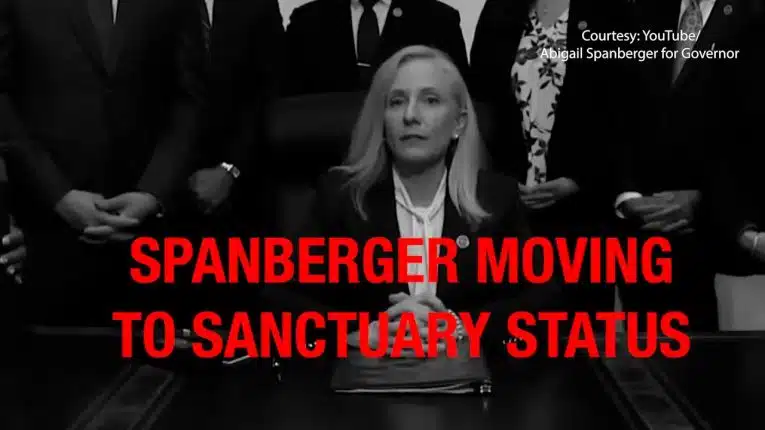
Immediately following the Sept. 10 ABC News debate between Vice President Kamala Harris and former President Donald Trump, the Harris campaign immediately requested another debate with Trump.
Campaign chair Jen O’Malley Dillon made the call within minutes of the debate ending, stating, “Under the bright lights, the American people got to see the choice they will face this fall at the ballot box: between moving forward with Kamala Harris, or going backwards with Trump. That’s what they saw tonight and what they should see at a second debate in October.”
Dillon added, “Vice President Harris is ready for a second debate. Is Donald Trump?”
For Trump’s part, he was non-committal, telling Fox News’ Sean Hannity in the post-debate spin room, “I have to think about it, but if you won the debate, I sort of think maybe I shouldn’t do it. Why should I do another debate? … You know what happens, when you’re a prizefighter and you lose, you immediately want another fight.”
It does raise the question: If Kamala Harris is so convinced she won the debate and did what she needed to win the election, why does she want another one?
A clue may be offered by where the national race was headed into the debate. For example, the Sept. 8 to Sept. 10 pre-debate Economist-YouGov poll showed the race for the popular vote tied with Harris garnering 45 percent and Trump with 45 percent, too, when Jill Stein, Chase Oliver and Cornell West are included on the ballot.
That, compared to the Sept. 1 to Sept. 3 and Aug. 25 to Aug. 27 Economist-YouGov polls that had shown Harris ahead of Trump 47 percent to 45 percent. The race tightened.
Similarly, the Sept. 4 to Sept. 5 Harvard-Harris poll showed Trump and Harris tied at 46 percent apiece in the popular vote with the other candidates included.
Simply put, Harris is not getting over 50 percent in the popular vote in the polls as it stands right now, with the current RealClearPolling.com average of national polls having the race at 47.3 percent to 45.4 percent.
Barack Obama and Joe Biden in 2008, 2012 and 2020 got above 50 percent, and they won the Electoral College. Although it is worth noting that Biden won the popular vote by 4.5 percent, 51.3 to 46.8 percent, and he barely won by a scant 43,000 votes in three swing states, Wisconsin (23,000), Georgia (10,000) and Arizona (10,000).
Whereas, Al Gore at 48.4 percent and Hillary Clinton at 48.2 percent got the largest pluralities in the popular vote in 2000 and 2016, and yet they lost close races in swing states. Could the same thing be happening again?
Election forecaster Nate Silver thinks it might, where if Harris is only up in the popular vote by 1 percent to 2 percent, his model shows she only has a 28 percent chance of winning the Electoral College, while Trump has a 70.6 percent chance of winning the race.
If the race is tied or within 1 percent, as it is in some polls, then Trump’s odds of winning the Electoral College rise to 89 percent, and Harris’ odds fall to 9.7 percent. And if Trump wins the popular vote, as the New York Times-Siena poll recently showed, 48 percent to 47 percent, then Trump’s odds of winning rise to 97 percent. In fact, no Republican who has won the popular vote has ever lost the presidential election, whereas it’s happened five times to Democrats: 1824, 1876, 1888, 2000 and 2016.
So, Harris’ goal headed into the debate was to move almost all of the undecided voters into her column, in the case of the most recent Economist-YouGov poll, about 5 percent of the electorate. The top issues in the poll were inflation at 23 percent and jobs and the economy at 12 percent and immigration at 10 percent and abortion at 9 percent.
But in the flash CNN post-debate poll showed that on key issues like the economy and immigration, based on what was seen in the debate, Trump led by 20 points and 23 points, respectively, on each issue — 55 percent to 35 percent and 56 percent to 33 percent. Trump even led on commander-in-chief, 49 percent to 43 percent. Whereas, Harris led on abortion 52 percent to 31 percent.
By some accounts, voters weren’t necessarily moved by Harris’ debate performance. For example, a small focus group followed by Reuters found out of 10 undecided voters, six swung to Trump, three to Harris and one was unmoved, with the headline, “Some undecided voters not convinced by Harris after debate with Trump.”
New York Times had a similar outcome, where respondents said they still had not heard enough about what Harris would do as president that was different from Biden, requesting more policy specifics.
For Harris, that might be considered a catastrophe, except it was planned, and her campaign cannot say it was not warned this could happen. After dumping Biden unceremoniously, Harris’ short convention acceptance speech in August was, again, light on specifics, and instead geared towards feeling and vibe.
And in the debate, Harris, who voters said they didn’t know enough about, again offered few specifics other than a larger child tax credit, a larger small business deduction, supporting legislation that would have allowed up to 1.8 million illegal alien entries every year and codifying abortions on demand nationally.
On the economy, Harris couldn’t or wouldn’t say whether the American people were better off than they were four years ago based on sticky inflation and a weakening economy, even though incomes clearly have not kept up with consumer prices by every measure — that is, real wages are down. Whereas, Trump, who voters feel they already know enough about, was able to capitalize on discontent over the state of things, and noting that in 2019, when Harris was running for president, she was far more specific and liberal in her positions.
Harris so far has thought sought to define Trump, but she may have missed her chance to define herself, failing to meet the moment. She could still win, but this might make it harder to do so.
The trouble for Harris is, after a convention and a national debate, if swing voters still don’t know where she stands, that means she has missed massive opportunities to lock in support, which could be what is keeping her well below 50 percent in national polls. Is it already too late? No risk, no reward, and with no further debates scheduled at the moment — no time.
Robert Romano is the Vice President of Public Policy at Americans for Limited Government Foundation.






